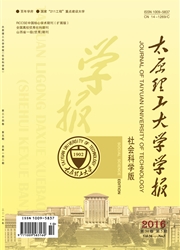

 中文摘要:
中文摘要:
优先发展公共交通是我国城市交通的发展战略,而公共交通的定价和财政补贴问题一直是公共交通发展的难点。文章通过分析公共交通票价与居民收入水平、企业经营成本和政府财政补贴等的关系,剖析居民乘坐公共交通的弹性特性,指出城市公共交通服务企业化定价中存在的问题;并利用效用函数研究了政府价格补贴对居民乘坐公共交通出行和企业制定公交票价的影响;最后,分析了政府价格补贴的优缺点,提出分类财政补贴和建立票价补贴联动机制的建议,为城市交通发展提供新的思路。
 英文摘要:
英文摘要:
With the increase of Chinese cities, giving priority traffic demand and the increasing seriousness of traffic problems in to the development of public transit system would be a necessary choice for the development of urban transit. But the difficulty of urban transit development lays in the urban transit pricing and financial subsidy. This paper analysis the relations among bus fares, the income level of residents, business costs and government financial subsidies. Through the flexibility analysis of bus riders,the problems about the market pricing of bus serving in a city are pointed out. The paper also studies the government price subsidies to residents travel choices and enterprises enacted bus fares. Finally, it points out the advantages and disadvantages of government price subsidies, and gives the suggestions of classification of financial subsidies and the establishment of the linkage mechanism between fare and subsidies.
 同期刊论文项目
同期刊论文项目
 同项目期刊论文
同项目期刊论文
 期刊信息
期刊信息
